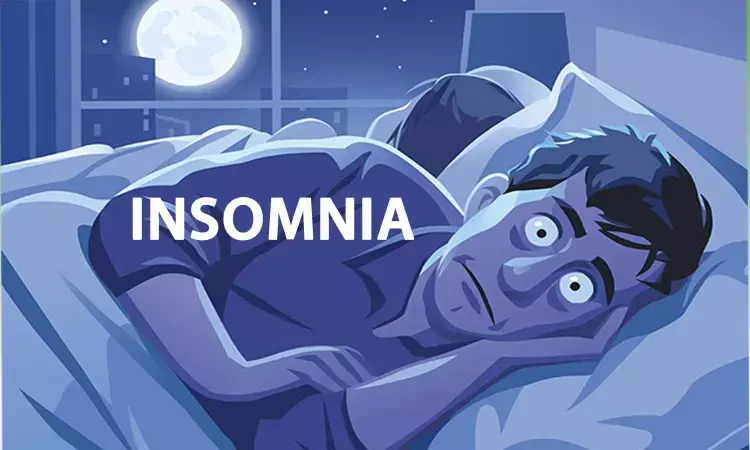- Home
- Medical news & Guidelines
- Anesthesiology
- Cardiology and CTVS
- Critical Care
- Dentistry
- Dermatology
- Diabetes and Endocrinology
- ENT
- Gastroenterology
- Medicine
- Nephrology
- Neurology
- Obstretics-Gynaecology
- Oncology
- Ophthalmology
- Orthopaedics
- Pediatrics-Neonatology
- Psychiatry
- Pulmonology
- Radiology
- Surgery
- Urology
- Laboratory Medicine
- Diet
- Nursing
- Paramedical
- Physiotherapy
- Health news
- Fact Check
- Bone Health Fact Check
- Brain Health Fact Check
- Cancer Related Fact Check
- Child Care Fact Check
- Dental and oral health fact check
- Diabetes and metabolic health fact check
- Diet and Nutrition Fact Check
- Eye and ENT Care Fact Check
- Fitness fact check
- Gut health fact check
- Heart health fact check
- Kidney health fact check
- Medical education fact check
- Men's health fact check
- Respiratory fact check
- Skin and hair care fact check
- Vaccine and Immunization fact check
- Women's health fact check
- AYUSH
- State News
- Andaman and Nicobar Islands
- Andhra Pradesh
- Arunachal Pradesh
- Assam
- Bihar
- Chandigarh
- Chattisgarh
- Dadra and Nagar Haveli
- Daman and Diu
- Delhi
- Goa
- Gujarat
- Haryana
- Himachal Pradesh
- Jammu & Kashmir
- Jharkhand
- Karnataka
- Kerala
- Ladakh
- Lakshadweep
- Madhya Pradesh
- Maharashtra
- Manipur
- Meghalaya
- Mizoram
- Nagaland
- Odisha
- Puducherry
- Punjab
- Rajasthan
- Sikkim
- Tamil Nadu
- Telangana
- Tripura
- Uttar Pradesh
- Uttrakhand
- West Bengal
- Medical Education
- Industry
Tai Chi, Exercise improves sleep in Older Adults with Insomnia, reports JAMA Study

Researchers from a recent study observed that Tai chi can be an alternative approach for managing insomnia, as published in the JAMA Open Network.
Tai chi is an accepted form of physical activity among older people because of its gentle, low-impact exercises, it can represent an alternative approach to fulfill the physical activity recommendations for improving sleep for individuals who are averse to conventional exercise.
Previous studies that have shown tai chi to improve sleep were mainly based on subjective assessments, which might have produced results confounded by self-reporting bias.
Hence, Parco M. Siu and colleagues conducted this study to compare the effectiveness of tai chi for improving sleep in older adults with insomnia with conventional exercise and a passive control group using actigraphy-based objective measurements.
This randomized, 3-arm, parallel-group, assessor-masked clinical trial was conducted at a single research unit in Hong Kong. Eligible participants, aged 60 years or older and with chronic insomnia, were randomly allocated into tai chi training, exercise, and control groups. A total of 320 participants (mean [SD] age, 67.3 [6.8] years; mean [SD] insomnia duration, 124.4 [134.5] months; 256 [80.0%] women) were randomly allocated into control (110 participants), exercise (105 participants), and tai chi (105 participants) groups and included in the data analysis.
12-week tai chi training, 12-week conventional exercise, and no intervention control were the set interventions.
Primary outcomes were measures taken from actigraphy sleep assessment. Secondary outcomes included remission of insomnia, insomnia treatment response, Pittsburgh Sleep Quality Index score, Insomnia Severity Index score, and self-reported sleep using a 7-day sleep diary. Assessments were performed at baseline, end of the intervention (postintervention), and 24 months after the intervention (follow-up).
The findings were-
- Compared with the control group, the exercise and tai chi groups showed improved sleep efficiency (exercise vs control: adjusted mean difference, +3.5%; 95% CI, 1.8-5.2; P < .001; tai chi vs control: adjusted mean difference, +3.4%; 95% CI, 1.6-5.1; P < .001) and reductions of wake time after sleep onset (exercise vs control: −17.0 minutes; 95% CI, −24.9 to −9.0; P < .001; tai chi vs control: −13.3 minutes; 95% CI, −21.3 to −5.2; P = .001) and number of awakenings (exercise vs control: −2.8 times; 95% CI, −4.0 to −1.6; P < .001; tai chi vs control: −2.2 times; 95% CI, −3.5 to −1.0; P < .001) as assessed by actigraphy at postintervention; although there were no significant differences between the exercise and tai chi groups.
- The actigraphy-assessed beneficial effects were maintained in both intervention groups at follow-up.
Hence, the authors concluded that "Conventional exercise and tai chi improved sleep and the beneficial effects sustained for 24 months, although the absolute improvements in sleep parameters were modest. Improvements in objective sleep parameters were not different between the tai chi and exercise groups, suggesting that tai chi can be an alternative approach for managing insomnia."
Dr. Nandita Mohan is a practicing pediatric dentist with more than 5 years of clinical work experience. Along with this, she is equally interested in keeping herself up to date about the latest developments in the field of medicine and dentistry which is the driving force for her to be in association with Medical Dialogues. She also has her name attached with many publications; both national and international. She has pursued her BDS from Rajiv Gandhi University of Health Sciences, Bangalore and later went to enter her dream specialty (MDS) in the Department of Pedodontics and Preventive Dentistry from Pt. B.D. Sharma University of Health Sciences. Through all the years of experience, her core interest in learning something new has never stopped. She can be contacted at editorial@medicaldialogues.in. Contact no. 011-43720751
Dr Kamal Kant Kohli-MBBS, DTCD- a chest specialist with more than 30 years of practice and a flair for writing clinical articles, Dr Kamal Kant Kohli joined Medical Dialogues as a Chief Editor of Medical News. Besides writing articles, as an editor, he proofreads and verifies all the medical content published on Medical Dialogues including those coming from journals, studies,medical conferences,guidelines etc. Email: drkohli@medicaldialogues.in. Contact no. 011-43720751


